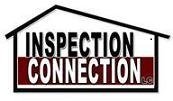So bright, your home needs shades
Solar screens make your house more comfortable.
Article originally published in the Las Cruces Bulletin on Friday, August 16, 2013
Exterior shading of a home’s walls, windows and skylights in the summer is one the first and best ways to keep inside temps comfortable and to save on the cooling bill.
As I’ve discussed before, heat energy that never comes into the home does not have to be removed by expensive mechanical equipment. Interior blinds and shading work well for privacy and, to some extent, to prevent radiant heat loss in the winter.
In summer, interior shades are merely a road bump for the massive heat load penetrating window assemblies. The air in the space between the shade and the inside of the window quickly heats up, similar to a solar collector panel, and begins to rise and move, creating a convective current. This heated air quickly moves up and away from the window area and into the living space of your home, where your air conditioner now has even more work to do. Exterior shading blocks this solar energy from ever contacting window glass or frames and greatly reduces the radiant and convective heat load entering the home. Effective exterior shading of west- and east-facing areas can be accomplished in many ways. Strategically placed trees and vegetation work great – but it can take a few seasons for plantings to reach a size that will do the job. Arbors, patios and porches are often used to shade key exterior wall areas, but high installation costs can quickly come into play. With our beautiful mountain views, many Las Cruces homes are oriented facing east and west. This reduces the shading effect from patios and overhangs due to the low angle of the morning and afternoon sun. Exterior mounted solar screens are a great, low-cost method of solving exterior window shading problems. Solar screens make a great do-it-yourself, honey-do project, or you can use a local installer. Solar screens come in many styles, types and colors. Mechanical retractable shades are hand or motor driven, and can be raised or lowered quickly depending on daily or seasonal weather changes. Fixed solar screens look like and install similar to typical insect screens. The key difference being that the solar screen material blocks up to 90 percent of the sun’s energy. You can choose solar screen frames that match your existing window frames and house colors; the most commonly available are white, bronze and tan. The solar screen material itself is also available in a range of shades from white to tan and from charcoal to black. With these choices you can either match the siding color of the home or choose to have a contrasting look – just keep in mind that the darker screen material, such as charcoal or black, gives better visibility from inside to the exterior. You will select from a range of shading coefficients – this is the percentage of solar heat gain that is transmitted to the interior through the glass and shading system to the interior. The lower the number, the less solar heat will enter your home and the lower your cooling bills will be. Many of our local and big-box hardware stores carry solar screen material and frame assembly components. Call ahead to see if they have the colors and types you need for your project. There also are dozens of online sources that can supply DIY information and solarscreen kits. You can build your own, or you can take measurements and have them shipped to you pre-assembled. Local window, shade and awning and remodeling contractors provide complete design, assembly and installation of solar screens – in case you don’t have room on your honey-do list this summer. El Paso Electric Co. also recognizes the energy saving potential for exterior shading, and offers a rebate for the installation of solar screens for its New Mexico service areas. The rebate is $1 per square foot of solar screen installed at east or west facing windows. For more information, visit www.epesaver.com. For more information on exterior shading and solar screens, visit www.phifer.com, www.santafeawning.com or www.nmsea.org/ passive_solar/passive_solar_design.htm.
Miles Dyson is the owner of Inspection Connection LC - Professional Home Energy Rating and Home Inspection Services. For more information visit: https://www.InspectionConnectionTexas.com.
